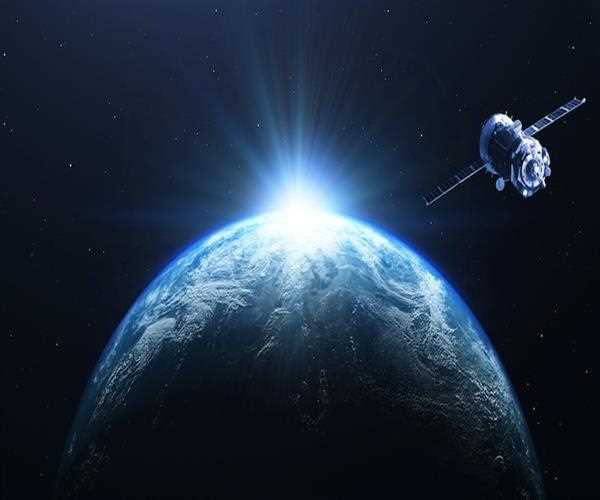
14-Jun-2023 , Updated on 6/14/2023 4:31:24 AM
Pros and cons of establishing human colonies on other celestial bodies
The idea of establishing human colonies on other celestial bodies has fascinated scientists, futurists, and space enthusiasts for decades. The exploration and colonization of space present numerous possibilities and challenges. While some argue that human colonization beyond Earth is our inevitable future, others caution against the potential risks and ethical concerns associated with such endeavors.
In this view, we will delve into the pros and cons of establishing human colonies on other celestial bodies.
Pros of Human Colonies on Other Celestial Bodies
Expansion of Human Civilization
Establishing colonies on other celestial bodies would allow humanity to expand beyond Earth, reducing the risks associated with being confined to a single planet. It would provide opportunities for scientific research, resource exploration, and potential long-term survival in the face of catastrophic events on Earth.
Scientific Exploration
Human colonies on other celestial bodies would serve as bases for scientific research, enabling us to study and understand the unique environments, geology, and atmospheres of other planets, moons, and asteroids. This knowledge could further our understanding of the universe and contribute to advancements in various fields, including astronomy, geology, and astrobiology.
Resource Utilization
Other celestial bodies are rich in resources that could be utilized for sustaining human colonies. For example, the Moon contains valuable minerals such as helium-3, which could be used in nuclear fusion, providing a potentially limitless and clean source of energy. Additionally, asteroids are known to contain valuable metals like platinum and gold, which could be harvested for industrial purposes.
Technological Advancements
The establishment of human colonies on other celestial bodies would require the development of advanced technologies. This could lead to breakthroughs in robotics, materials science, propulsion systems, and life support systems. These advancements could have far-reaching implications and spin-off benefits for various industries on Earth.
Inspiration and Motivation
The pursuit of human colonies in space serves as a powerful source of inspiration and motivation. It ignites curiosity, encourages innovation, and drives scientific progress. It inspires generations to push the boundaries of what is possible, fostering a sense of unity and shared purpose among humanity.
Cons of Human Colonies on Other Celestial Bodies
Astronomical Costs
Establishing human colonies on other celestial bodies is an immensely expensive endeavor. It requires significant financial resources and long-term investment. The costs associated with transporting humans, building infrastructure, developing sustainable habitats, and ensuring the well-being of colonists are substantial and could strain national budgets.
Technological Limitations
The technology required to sustain human life in space for extended periods is still in its infancy. Overcoming the challenges of radiation exposure, limited resources, microgravity effects on the human body, and the absence of a breathable atmosphere remains a significant hurdle. The development and implementation of reliable and efficient life support systems and propulsion technologies are essential prerequisites for successful colonization.
Ethical Considerations
The establishment of human colonies on other celestial bodies raises ethical concerns. The potential exploitation of extraterrestrial resources without considering the environmental impact on these pristine environments could have irreversible consequences. Additionally, questions about property rights, governance, and the impact on indigenous life, if discovered, must be carefully addressed to ensure responsible exploration and colonization.
Health and Well-being Challenges
The human body is adapted to the conditions on Earth, and prolonged exposure to the harsh environment of space can have detrimental effects on human health. The effects of microgravity, radiation, and isolation can lead to various physical and psychological issues. Ensuring the physical and mental well-being of colonists would require extensive medical support and robust psychological assistance programs.
Social and Cultural Challenges
Colonizing other celestial bodies would require the establishment of self-sufficient communities with their own social, economic,and cultural dynamics. The isolation and limited resources of space colonies could lead to social stratification, inequality, and psychological challenges within the community. Maintaining a cohesive and harmonious society in the face of such challenges would require careful planning, effective governance, and continuous support systems.
Sustainability and Environmental Impact
The establishment of human colonies on other celestial bodies would need to prioritize sustainability to ensure long-term viability. Managing waste, recycling resources, and maintaining ecological balance would be crucial to minimize the environmental impact of human activities. Without proper planning and responsible practices, colonization efforts could contribute to the degradation of celestial bodies and hinder future scientific exploration.
Conclusion
The prospect of establishing human colonies on other celestial bodies presents both exciting opportunities and daunting challenges. The expansion of human civilization, scientific exploration, resource utilization, technological advancements, and inspiration are among the potential benefits. However, the significant costs, technological limitations, ethical considerations, health and well-being challenges, social dynamics, and environmental impact must be carefully addressed. As humanity embarks on this journey, it is crucial to strike a balance between exploration and responsible stewardship of the cosmos, ensuring that our endeavors in space benefit both our species and the universe as a whole.

SEO and Content Writer
I am Drishan vig. I used to write blogs, articles, and stories in a way that entices the audience. I assure you that consistency, style, and tone must be met while writing the content. Working with the clients like bfc, varthana, ITC hotels, indusind, mumpa, mollydolly etc. has made me realized that writing content is not enough but doing seo is the first thing for it.
Join Our Newsletter
Subscribe to our newsletter to receive emails about new views posts, releases and updates.
Copyright 2010 - 2026 MindStick Software Pvt. Ltd. All Rights Reserved Privacy Policy | Terms & Conditions | Cookie Policy